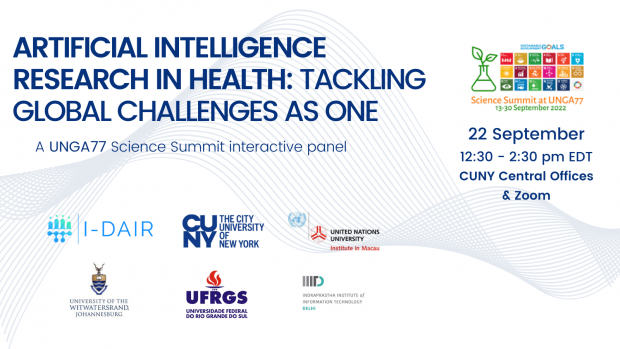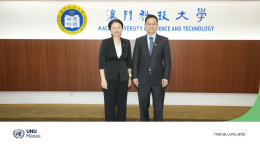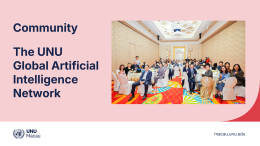Artificial Intelligence (AI) can help unlock new preventive treatments, advance personalized medicine, and implement precise public health interventions. However, there is a growing knowledge power imbalance between a few countries leading in AI and the rest of the world. In particular, researchers and innovators in low-middle income countries (LMICs) lack the required training, high-quality datasets, and infrastructure to develop and apply algorithms based on their own contexts. Furthermore, initiatives to build health datasets are often siloed, thereby limiting their value for the AI research and development (R&D) landscape due to a lack of scale and diversity. These challenges make it difficult to conduct inclusive and impactful AI research in health that provides global benefits.
In order to harness the power of AI in health, the International Digital Health & AI Research Collaborative (I-DAIR) and its partners believe in a transdisciplinary, collaborative approach to AI research in health, with a focus on bringing together the voices of different LMICs stakeholders from the outset. Having a neutral, trusted space for knowledge exchange and where existing technologies are available as digital public goods can enable the global R&D agenda to manifest sustainably and bring us closer to achieving Sustainable Development Goal (SDG) 3. UNU Macau joins I-DAIR and its global partners from Indraprastha Institute of Information Technology Delhi, Universidade Federal do Rio Grande do Sul, the Africa-Canada AI and & Data Innovation Consortium led by York University and the University of the Witwatersrand, and the City University of New York are thus conducting a session to explore how collaborative research in AI for health can be established and sustained, as well as how technology can help to overcome pressing global health challenges advancing healthy lives and well-being for all.
Divided into two discussions, this session will introduce practical and applicable solutions answering to the recommendations made by the UN Secretary-General’s High-level Panel on Digital Cooperation, focusing on health challenges as a use case to help identify potential action points and catalyze international collaboration to address them.
The first panel “Promoting collaborative research in AI for health” will look at promoting collaborative research for responsible AI for health by means of levelling the playing field and promoting inclusivity and transdisciplinarity in research to foster responsible development and deployment of AI in health with contextualized and unbiased technology that can ensure human agency over AI in the long run.
The second panel “State of the art in AI for health” will explore how to leverage technology to overcome pressing global health challenges (namely anti-microbial resistance, outbreaks of emerging infectious diseases, cardiovascular diseases, and environmental changes) and provide effective methods of early detection. Going beyond the traditional vertical approach, we will explore how AI can help cut across scientific silos to promote a holistic approach to solving these challenges.
This event will contribute to advancing national and international R&D agendas and digital health strategies, by bringing examples and evidence from different contexts on the use of technology for achieving SDG 3. It will enrich and deepen the dialogue between government representatives, scientists and civil society on some of the most pressing challenges and opportunities in using AI to improve the future of healthcare and drive universal health coverage.
Program of the event and more information may be found at: Science Summit at United Nations General Assembly 77 (UNGA77)





